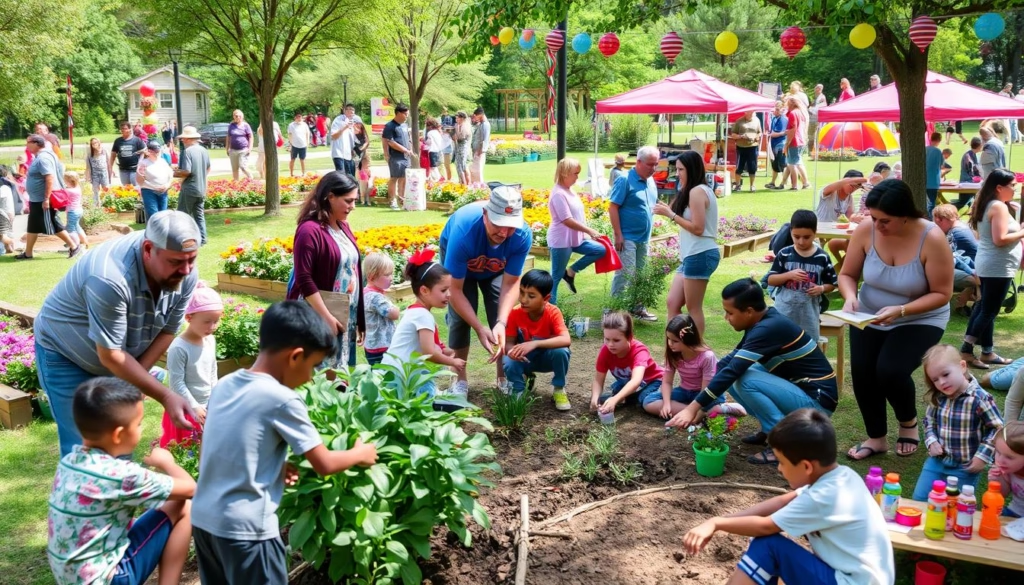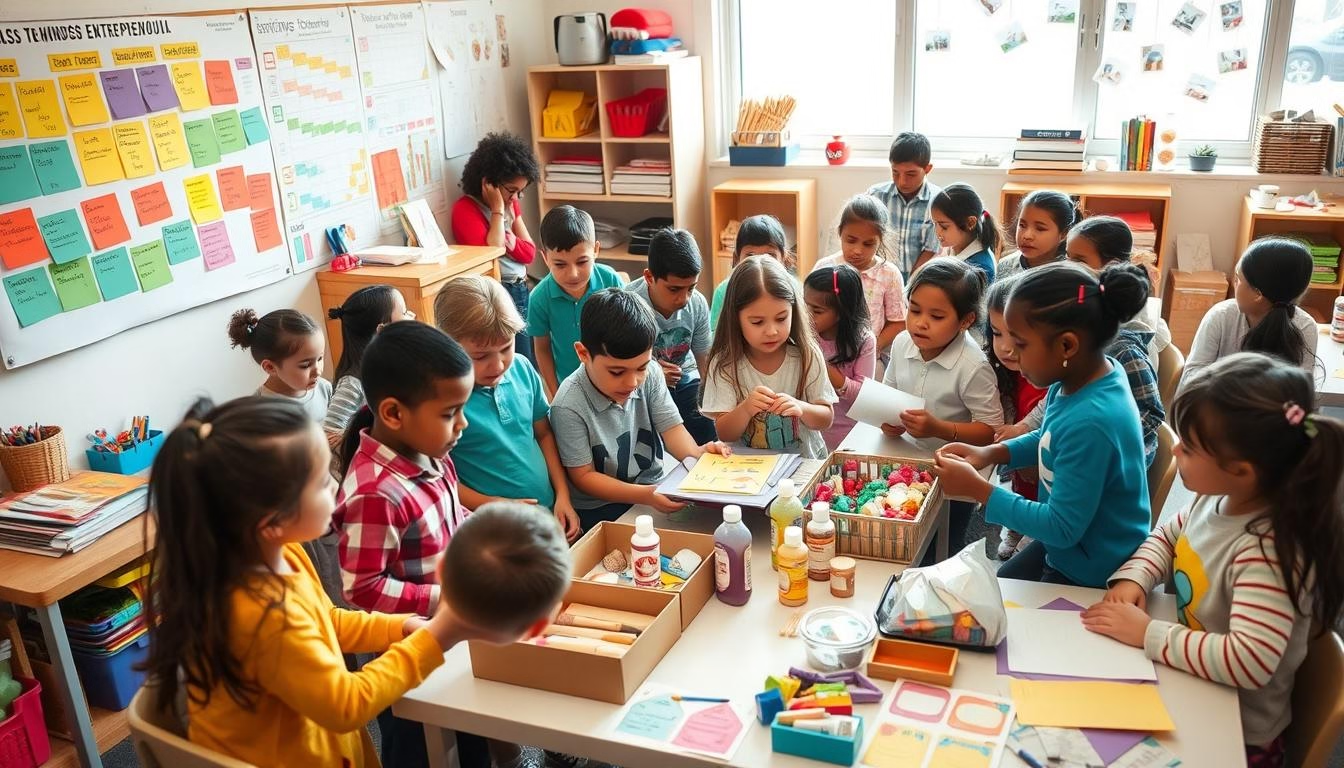Keeping children happy is a big worry for many adults. Happy kids tend to do well in life, excelling in their careers and personal relationships. The first thing parents can do is work on their own happiness. This is because a parent’s happiness really affects their child’s life.
Studies have found a strong connection between a mother’s depression and her child’s behavior. Children of depressed mothers often face behavioral issues.
Key Takeaways
- Positive parenting and emotional intelligence are crucial for raising happy children.
- Strong parent-child relationships and open communication foster trust and resilience.
- Encouraging optimism, problem-solving skills, and self-confidence helps children thrive.
- Balancing structured and unstructured activities, including playtime, supports holistic development.
- Celebrating small and major milestones strengthens family bonds and overall happiness.
Understanding the Foundation of Child Happiness
Raising happy kids starts with knowing the science of their well-being. Parents are key in their emotional growth. Research shows that 10-20% of happiness is in our control, shaped by our thoughts and choices.
The Science Behind Children’s Well-being
Children feel safe and happy when they have positive relationships and support. Experiences, not things, bring more joy. Teaching kids to focus on effort and growth boosts their confidence and resilience.
Impact of Happy Children on Future Success
A Harvard study linked doing chores in childhood to later success. This shows that teaching responsibility early can greatly impact a child’s future happiness and success.
Role of Parents in Emotional Development
Parents are vital in shaping their kids’ emotional intelligence and happiness. By being positive role models and creating a caring home, parents can make a big difference. Listening to kids, teaching them to be assertive, and showing them how to handle tough emotions can lead to a happier life.
“The greatest gifts you can give your children are the roots of responsibility and the wings of independence.”
The Key to Raising Happy Kids: Essential Principles
Positive parenting is key to making kids happy. It starts with a loving home, encouraging play, and using positive words. This helps kids feel good and do well in life.
It’s important to support your child’s feelings. Listen well, accept their emotions, and let them express themselves. This builds their emotional strength and ability to handle life.
Setting rules and routines also helps. It makes kids feel secure and teaches them self-control. This is vital for their growth.
- Develop emotional intelligence: Teach children to identify and manage their emotions, building a strong foundation for healthy relationships.
- Foster optimism: Help children cultivate a positive outlook on life, equipping them with the skills to navigate challenges and build self-confidence.
- Ensure safety and security: Provide a nurturing, consistent environment where children feel safe to explore and grow.
By following these key principles, parents can make their family happier. Positive parenting helps kids grow, strengthens family ties, and ensures a happy future.
“The greatest gift you can give your child is a happy, healthy parent.” – Anonymous
Building Strong Parent-Child Relationships
Creating strong family bonds and open communication is key to raising happy kids. By building trust and spending quality time with their children, parents lay a solid foundation. This foundation supports kids’ emotional, social, and intellectual growth.
Creating Trust and Open Communication
Building trust is vital. It makes kids feel safe, valued, and free to share their thoughts and feelings. Parents can build trust by being always there for their kids, understanding their needs, and creating a safe space for open talks.
Quality Time and Family Bonding Activities
Doing things together, like eating meals, going on adventures, and spending one-on-one time, is crucial. These moments strengthen the bond between parents and kids. They also boost kids’ well-being, improve their communication skills, and make them feel part of the family.
Active Listening Techniques
Using active listening, like eye contact, paraphrasing, and asking questions, helps parents understand their kids better. This deepens the relationship and makes kids feel heard and understood.
“The key to building a strong relationship with your child is to create an environment of trust, open communication, and quality time spent together. When children feel safe, valued, and connected, they thrive.” – Parenting Expert, Dr. Sarah Anderson
By focusing on these key areas, parents can strengthen family bonding, improve communication skills, and build a lifelong bond of trust and understanding with their children.
Emotional Intelligence and Self-Expression
Teaching kids about emotional intelligence is key for their happiness and success. It helps them understand and share their feelings. This skill is vital for personal and social growth.
Studies show emotional intelligence is linked to success in many areas. It helps kids do better in school and make healthier choices. It’s a skill that matters a lot.
The “RULER” program from Yale is a great way to teach this. It boosts productivity and grades, and reduces bullying. Mindfulness and yoga also help kids manage their feelings better.
Encouraging kids to express themselves through art and play is important. It helps them know who they are and share their feelings. Showing your own emotions is a great way to teach them.
Practicing emotional intelligence every day is beneficial. It helps kids deal with their feelings and see mistakes as learning chances. This builds a growth mindset.

“Emotional intelligence is highlighted as crucial for happiness and success in life.” – The Guardian
By focusing on emotional intelligence and self-expression, parents can help their kids. They will be more resilient, empathetic, and understand themselves and others better.
Fostering Optimism and Positive Thinking
Optimism is crucial for raising happy and resilient kids. Studies show that boosting a child’s optimism can lead to long-term happiness and success. Teaching resilience and problem-solving skills helps kids tackle challenges better.
Teaching Resilience and Problem-Solving
Children raised in positive environments tend to do well and feel less stressed. Optimistic kids see challenges as temporary and conquerable. Parents can encourage this by promoting a growth mindset and celebrating achievements.
Helping Children Navigate Challenges
Teaching kids to be grateful can improve their well-being. Helping them see the positive side of things builds optimism. Parents who are optimistic and positive can greatly influence their kids’ outlook.
Building Self-Confidence Through Achievement
Creating a family mantra like “We got this” can instill optimism. Supporting kids emotionally makes them feel secure and confident. Encouraging a growth mindset helps them see failures as learning opportunities.
Letting kids make decisions and take risks boosts their confidence and independence. By teaching optimism, resilience, and problem-solving, parents help their kids thrive and find happiness.
Creating Healthy Routines and Boundaries
Setting up clear routines and boundaries is key for raising happy kids. Parents can teach their children to manage their emotions by giving them structure and discipline. This helps kids succeed in the long run.
Having a regular bedtime routine is important for good sleep. It helps kids stay healthy. Setting rules and consequences helps toddlers know their limits and learn self-control. Parents should praise good behavior and give choices to help kids feel independent and confident.
- Implement consistent daily routines for mealtimes, playtime, and bedtime
- Establish clear rules and consequences, and enforce them consistently
- Provide opportunities for children to make age-appropriate choices
- Use positive reinforcement to encourage desired behaviors
Creating a structured home with clear boundaries helps kids develop important skills. They learn discipline strategies, self-regulation, and a sense of structure. These skills are crucial for facing childhood and teenage years.
“Genuine happiness is associated with better school attendance, better academic performance, better self-esteem, and better overall health.”
The Power of Play and Unstructured Time
In today’s world, where schedules are tight and screen time is up, unstructured play is key. It helps kids grow in ways that structured activities might not. Free play lets kids learn important skills like self-regulation and teamwork.
Benefits of Free Play for Development
Free play lets kids be creative and independent. Symbolic play is especially good for their development. It helps them think and feel better, making them happier and more confident.
Balancing Structured and Unstructured Activities
While structured activities are good for older kids, a mix of both is best. Doctors now give “prescriptions for play” to kids up to age 2. This shows how important play is in learning and socializing.
Nature’s Role in Child Development
Outdoor play lets kids explore and be active. It’s good for their bodies and minds. Playing outside also helps reduce stress and boosts thinking skills.
“The United Nations recognizes play as one of the basic rights of every child.”
By mixing structured and free play, we help kids grow in all areas. This prepares them to succeed in life.
Supporting Academic and Social Growth
As parents, our main goal is to help our children grow well in all areas. We want them to do well in school and be happy. It’s important to remember that school success shouldn’t make them unhappy.
To help your child love learning, encourage their curiosity. Let them explore what they’re interested in. Make sure they have a place to study and learn without feeling stressed. This way, they’ll naturally want to learn more.
It’s also key to help your child make friends and learn social skills. Arrange playdates and group activities. Strong social skills make kids happy and set them up for success in life.
| Statistic | Insight |
|---|---|
| According to the Search Institute, young people need positive relationships with three or more adults outside of their family to help them become healthy, responsible, caring adults themselves. | Community involvement and access to diverse role models and mentors are crucial for a child’s development. |
| The 40 Developmental Assets framework, used in programs like Raising Highly Capable Kids (RHCK), is designed to equip kids with skills and behaviors for a successful future. | Holistic programs that focus on building a child’s developmental assets can foster well-rounded growth and prepare them for future success. |
| Children who are socially and emotionally healthy tend to demonstrate positive mood approximately 68% of the time. | Prioritizing a child’s social and emotional well-being can significantly improve their overall mood and outlook on life. |
By focusing on both school and social skills, you can help your child grow into a well-rounded person. They’ll be ready to face the world’s challenges. A happy, socially skilled child will do well in life, now and in the future.

“Prioritizing family health and the parent-child relationship is crucial for raising highly capable kids in today’s constantly changing world.”
Conclusion
Raising happy kids is a big job that needs a mix of emotional smarts, strong family ties, and a caring home. Parents should look after themselves, spread joy, and support their kids’ adventures. This helps kids feel good and do well in life. Every child is different, so being flexible is important.
Working hard to make kids happy and well-adjusted brings big rewards. It makes family life better and helps kids succeed for a long time. A parenting guide that teaches about raising happy kids and building positive family dynamics is very helpful. It guides parents through the tough parts of raising kids and helps them grow.
By using the tips from this article, parents can make a home that boosts kids’ emotional smarts and self-confidence. This way of parenting guide helps kids grow into well-rounded people. They can face today’s world’s challenges and make a difference in their communities.





